
KNOWLEDGE RESOURCES
UPD also witnesses the release of key reports, policy briefs, and publications by IIHS that contribute to the discourse on urban development in India. They provide valuable insights and data to inform policy and decision-making in India.
2023 Knowledge Resources

Summary Of Discussions
An annual flagship event of the Indian Institute for Human Settlements (IIHS), the UPD brings together select participants from diverse spheres of action to reflect on a bolder, more sustainable, and more equitable urban transformation agenda for India. The first edition of the UPD was held in 2014, as the second generation of the country’s flagship urban policies were being formulated.
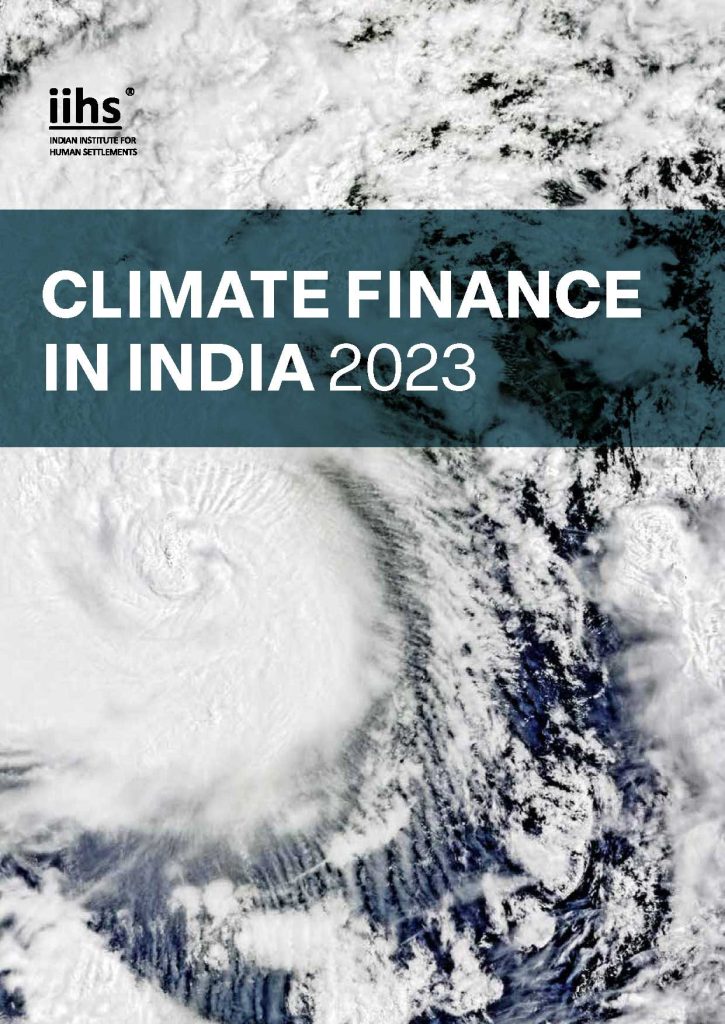
Climate Finance in India 2023
This report takes stock of the current climate finance landscape in India, along with the estimated financing requirements, enabling conditions and macro policy instruments to achieve national 1.5oC and 2oC goals. While the negative impact of climate change on India’s economy is projected by scholars at around 3 to 10 percent of annual Gross Domestic Product (GDP), meeting the global 1.5°C target will require investments of 7 to 18 per cent of country’s GDP.

Indian Municipal Finance 2023
This study examines decadal time-series data from 33 Urban Local Bodies (ULBs) of varying sizes across India. The findings reveal persistent challenges around intergovernmental transfers, revenue mobilisation and O&M (operations and maintenance) expenditure, while identifying opportunities to address some of these concerns.
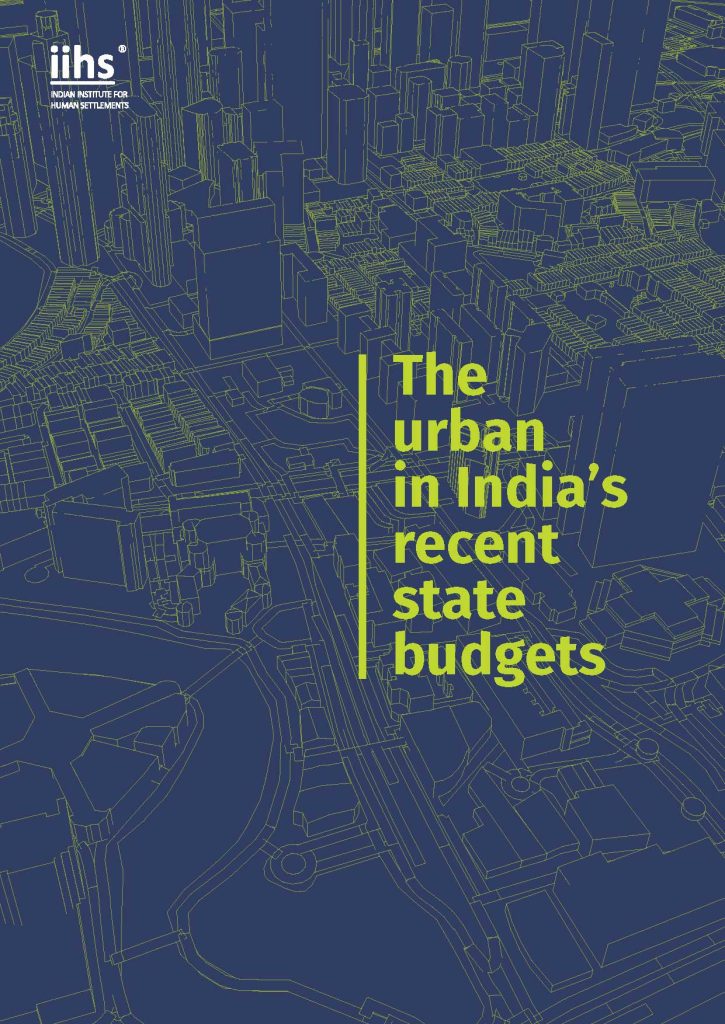
The Urban in India’s Recent State Budgets
This study explores the pivotal role of Indian state governments in shaping urban development. Examining five diverse states—Kerala, Madhya Pradesh, Odisha, Rajasthan, and Tamil Nadu—during the 2021-22 to 2023-24 period, the research reveals a recent surge in attention and financial commitment to urban development. This study provides valuable insights into the nuanced strategies of state governments, the variations among them, and the role of centrally sponsored schemes.
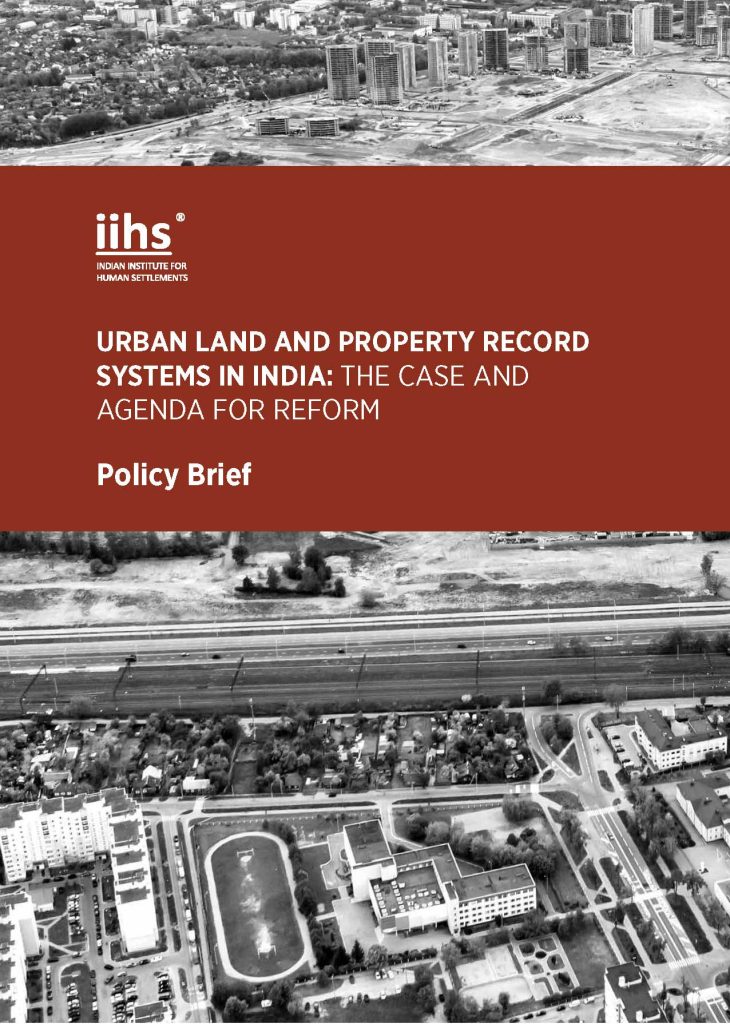
Urban Land and Property Systems in India: The Case and Agenda for Reform
This policy brief draws attention to the current status of land and property information system in Indian cities, and core gaps therein. It dwells on the case for reforming the country’s urban land and property record systems and proposes a way forward.

The State of Real Estate Regulation in India 2023
This report draws on data available in the public domain from 18 RERAs and their websites to take stock of the progress made in last seven years in relation to the remit of RERA activity, the extent and timeliness of project disclosures, arrangements for grievance redress and institutional functioning of real estate regulatory authorities.
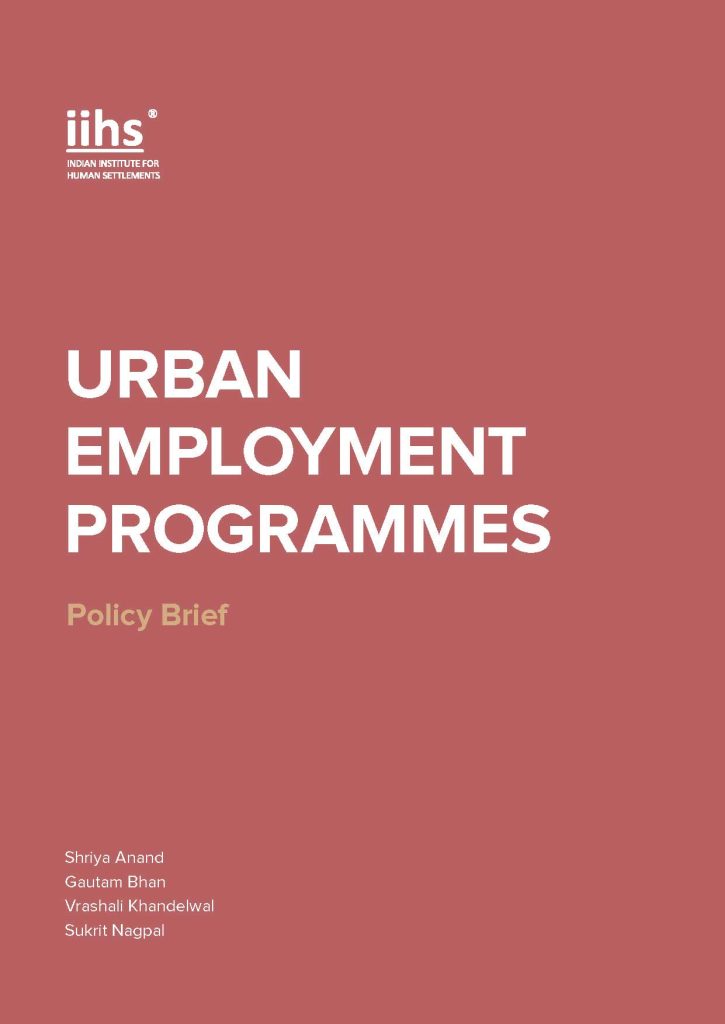
Urban Employment Programmes
This policy brief examines urban employment programmes (UEPs) in India offering insights into three models of UEPs currently prevalent in India, including the scope and design of these programmes, the nature of permitted works, and delivery mechanisms. It suggests changes and modifications towards the design and operationalisation of UEPs so that they can also be leveraged to take on broader questions of urban inequalities.
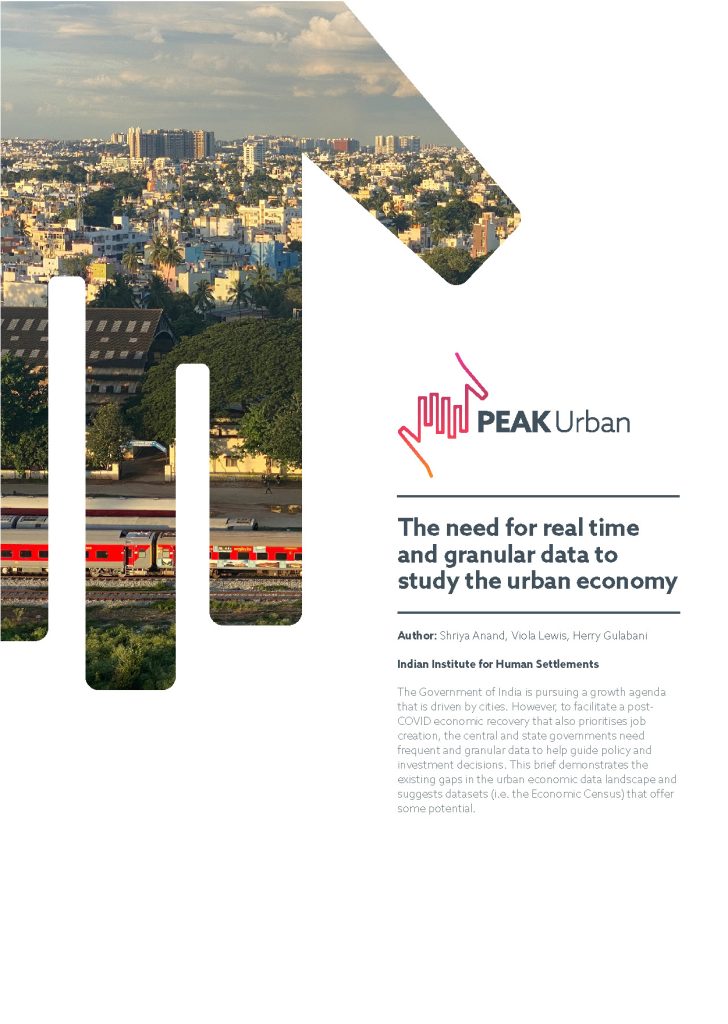
The Need for Real Time and Granular Data to Study the Urban Economy
The policy brief argues that the recent economic growth agenda driven by cities is severely constrained by gaps in the ways by which data is collected and released, and the level of spatial granularity available. While some datasets offer some potential, it is important to address the gaps in order to more effectively make economic and urban plans, as well as prioritise areas for infrastructure investments.

The Application of Granular Economic Data for Improved Planning and Decision-making in Indian Cities
To address the need for granular data on urban economies, IIHS’ research has compiled such a dataset for the Indian city of Bangalore, covering formal and informal firms across different kinds of economic activities at a high level of spatial granularity. In this brief, we present applications of this newly constructed dataset for understanding Bangalore’s urban economy, and make a case for how this can play an important role to support better economic and urban planning for Indian cities.
2022 Knowledge Resources
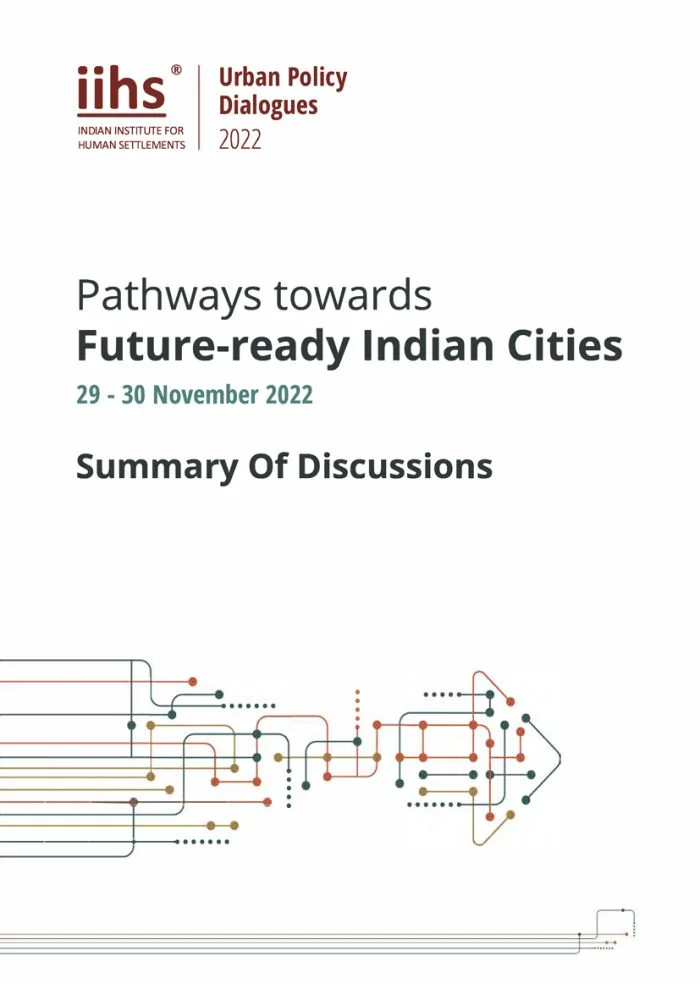
Summary Of Discussions
The eighth edition of the UPD was held over 29-30 November 2022 at IIHS’ Bengaluru City Campus. The convening explored Pathways towards Futureready Indian Cities. This was in recognition of the key role Indian cities have in realising the country’s ambitious economic, developmental, and environmental goals, the serious legacy and emergent challenges they face, and, therefore, the need for reflection on the development agendas that they need to prioritise and pursue.
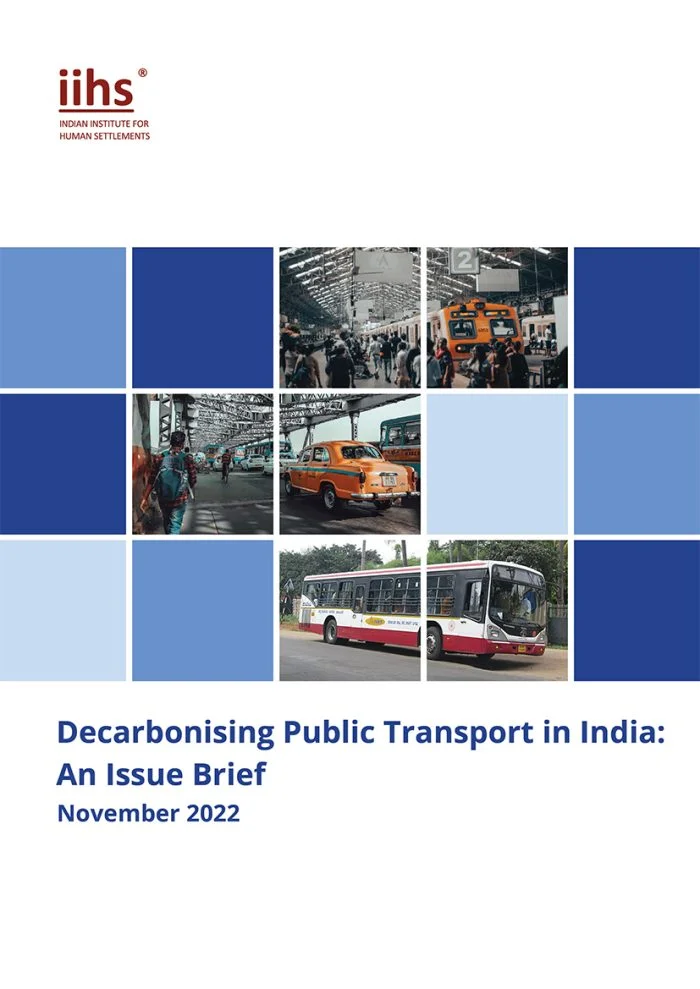
Decarbonising Public Transport in India: An Issue Brief
This issue brief focuses on the goals of decarbonisation in the transport sector, summarising contemporary insights that could help frame an actionable agenda in the context of the India’s urban public transport systems. The brief suggests that a modal ‘shift’ towards public transport, with a focus on public transit systems such as buses, could be the primary vehicle for urban transport decarbonisation in India.

Indian Municipal Finance 2022: An Update
Municipal expenditures and revenues in Indian ULBs are only about 1 per cent of the country’s Gross Domestic Product (GDP), far less compared to other developing countries, where they are about 6–7 per cent of the GDP (Ahluwalia et al., 2019). The present exercise updates our work on the report titled Indian Municipal Finance 2022, in which data of 80 ULBs over 5 years, FY 2012–FY 2016, were collected and analysed based on relevant indicators from the revenue and expenditure head.
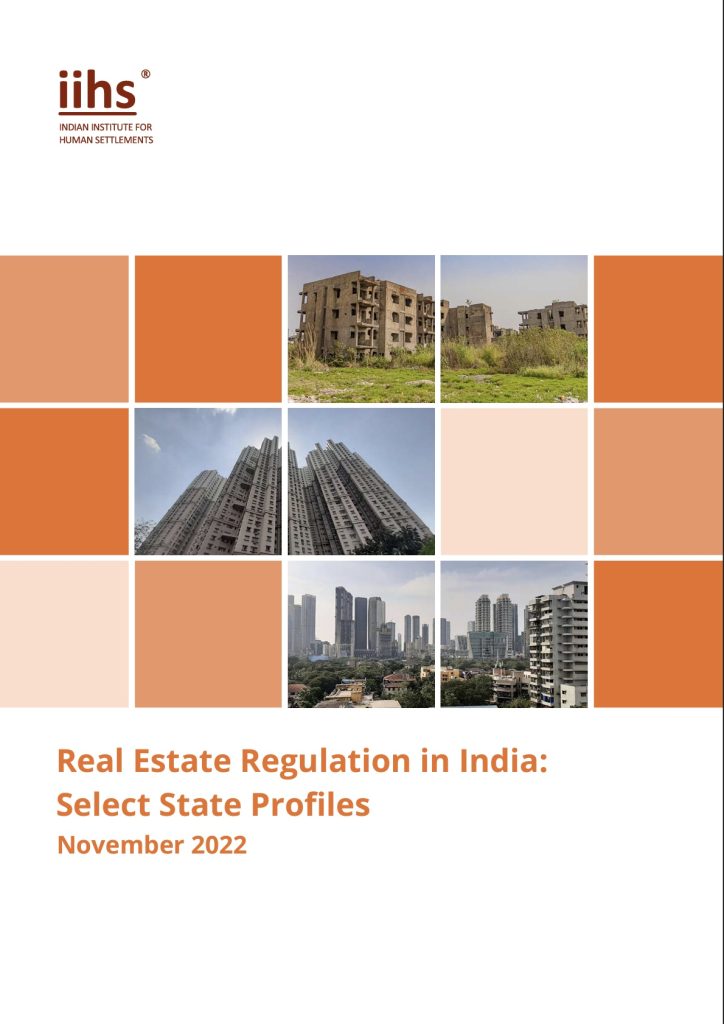
Real Estate Regulation in India: Select State Profiles
Locating its reflections in the economic contributions of the real estate sector in the study states and the predominant real estate markets within these states, the publication takes stock of the levels and distribution of RERA’s registration activities, their record in addressing consumer grievances, and their financials and staffing.
2021 Knowledge Resources

Summary Of Discussions
UPD 2021 was anchored around the overarching question of ‘The Role of the Urban in post–COVID Recovery’. It did so by focusing on three themes: resilient infrastructure; inclusive water and sanitation; and land and housing. These thematic entry points were used to enable discussions on potential post–COVID recovery pathways and how urban areas could contribute to them.

Land Records Modernisation in India: An Institutional, Legal & Policy Review
During 2017–2020, a team of researchers at the Indian Institute for Human Settlements conducted a series of primary and secondary studies on land record modernisation initiatives in five states andb union territories of India. Based on extensive on-ground research, this work is part of a five-volume set that presents findings from Delhi, Maharashtra, Chandigarh, Karnataka and Uttar Pradesh, with a focus on urban land and property records and the associated complexities.
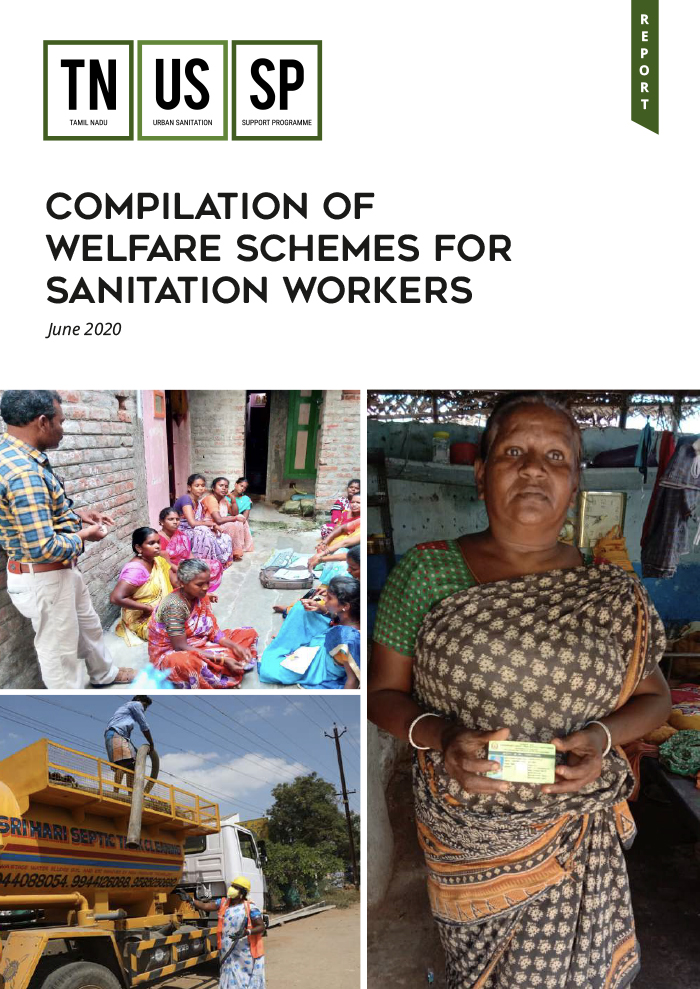
Compilation of Welfare Schemes for Sanitation Worker
Sanitation workers are the backbone of the public hygiene and waste management system. Despite providing an essential public service, their work is often unrecognised. A majority of the workers too are unaware of the social security and welfare schemes instituted by both the Central and State governments for their wellbeing, which prevents them from availing the benefits such as pension, differently-abled and education and women welfare assistance, among others. This document furnishes the details of the social security and welfare schemes implemented by the Central and State governments, the eligibility criteria and benefits, and how sanitation workers can access them.
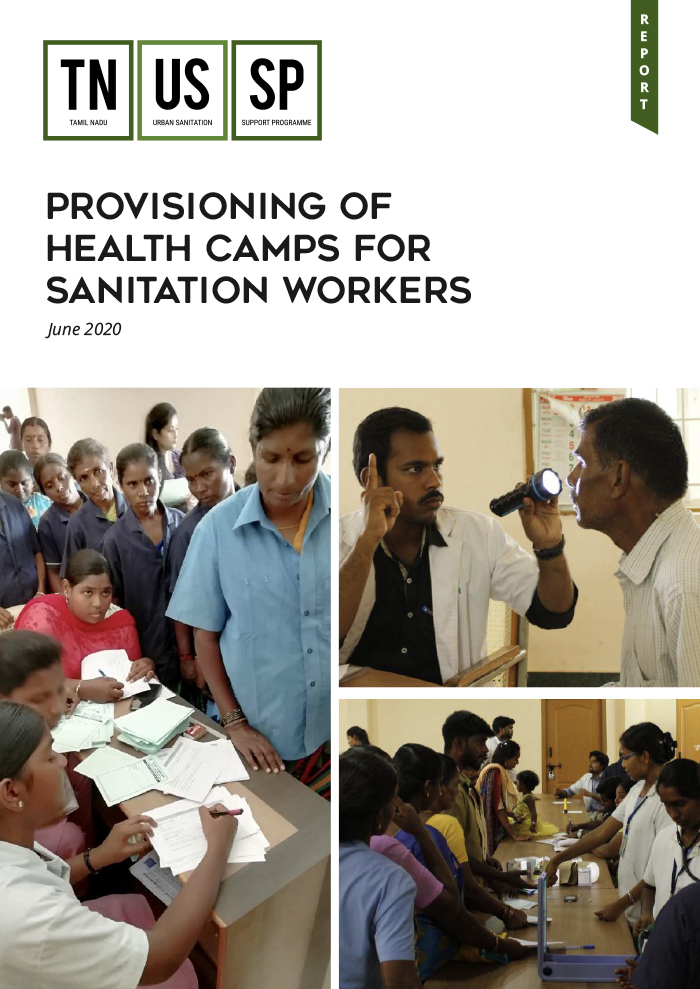
Provisioning of Health Camps for Sanitation Workers
The Tamil Nadu Urban Sanitation Support Programme (TNUSSP) has been supporting the Government of Tamil Nadu (GoTN) in achieving total sanitation in the state, and are demonstrating innovations intwo model urban locations – Tiruchirappali Corporation, and Periyanaicken-palayam (PNP) and Narasimhanaicken-palayam (NNP) town panchayats. The Bill and Melinda Gates Foundation (BMGF) is supporting the GoTN through TNUSSP.
This report documents the experiences of the 11 health camps organised over the last three years in Coimbatore district and proposes a way forward to institutionalising regular health camps that specifically address the needs and risks faced by sanitation workers.

De-sludging Operators: An Assessment of Occupational Safety in Two Indian Cities
Safe collection, handling and transport of fecal sludge is an integral part of septage management but has received limited attention so far. Motorised emptying and transport involves a truck with a standalone or mounted vacuum pump, along with a storage tank which is used to empty and transport septage. Desludging trucks operate within the informal sector, with limited official data available on their numbers, operations, coverage and disposal practices.
To gain a deeper and clearer understanding of the occupational practices of desludging operators and safety of workers, a study was undertaken in one city in India.
